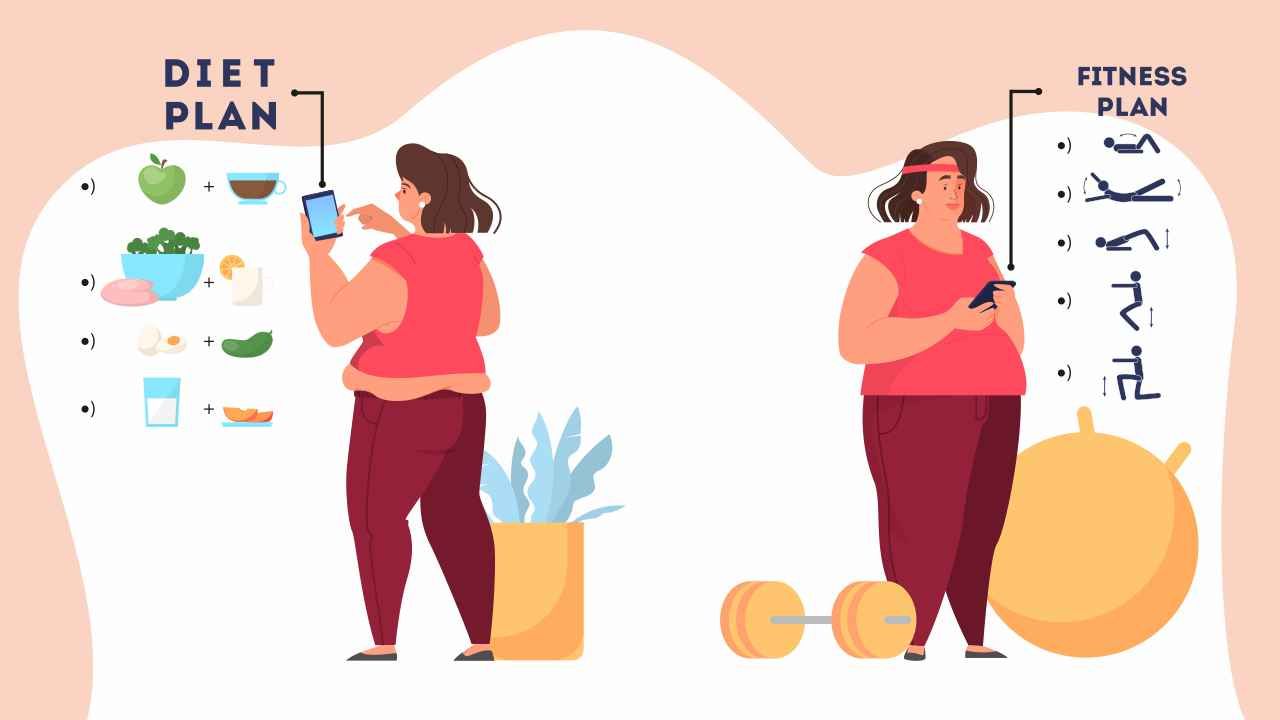How Long Does It Take to Lose Weight? A Realistic Timeline for Your Weight Loss Journey

Are you eager to shed those extra kilograms and embark on a journey toward a healthier lifestyle? If so, you're not alone. Weight loss is a common goal for many people, whether it's for a special occasion or simply to improve overall well-being.
However, it's important to set realistic expectations and understand the factors that can influence how long it takes to achieve your weight loss goals. In this article, we'll explore the basics of weight loss, the factors that contribute to its duration, the best diet for success, safe rates of weight loss, and ultimately, the bottom line.
Weight Loss Basics: How Does It Happen?
Weight loss occurs when you consistently consume fewer calories than you burn each day. It's a simple equation: when you eat more calories than your body needs, you gain weight, and when you eat fewer calories, you lose weight. Every calorie from the food and beverages you consume contributes to your overall calorie intake. On the other side, your calorie expenditure is determined by three major components:
- Resting Metabolic Rate (RMR): This is the number of calories your body requires to carry out basic bodily functions such as breathing and circulation.
- Thermic Effect of Food (TEF): This refers to the calories your body uses to digest, absorb, and metabolize the food you consume.
- Thermic Effect of Activity (TEA): These are the calories burned during physical activity, including exercise and non-exercise activities like gardening or fidgeting.
To lose weight, you need to create a calorie deficit by either consuming fewer calories or increasing your physical activity to burn more calories. By consistently maintaining a calorie deficit, your body will start tapping into its stored fat for energy, resulting in weight loss.

Contributing Factors: Understanding the Variables
Various factors can influence the rate at which you lose weight, many of which are beyond your control. Let's explore some key factors:
1. Gender: Your fat-to-muscle ratio plays a significant role in weight loss. Due to typically having a higher fat-to-muscle ratio than men, women tend to have a 5-10% lower Resting Metabolic Rate (RMR). This means that women burn fewer calories than men at rest, making weight loss slightly slower for them. However, it's important to note that weight loss rates may vary among individuals, regardless of gender.
2. Age: Aging brings changes in body composition, such as an increase in fat mass and a decrease in muscle mass. These changes, combined with a decline in calorie needs for bodily functions, can result in a lower RMR. As a result, weight loss may become more challenging with age.
3. Starting Point: Your initial body mass and composition can also impact the speed of your weight loss journey. It's crucial to remember that weight loss is a complex process, and absolute weight loss (in kilograms) can differ between individuals while achieving the same relative weight loss percentage. In simpler terms, a heavier person may lose more pounds, but a person with less weight can still achieve a similar percentage of weight loss.
4. Calorie Deficit: The extent of your calorie deficit plays a role in determining the pace of your weight loss. A larger calorie deficit will likely result in faster weight loss, but it's essential to strike a balance. Extremely low-calorie diets are unsustainable and can lead to nutrient deficiencies. Moreover, they may cause muscle loss instead of fat loss.
5. Sleep: Adequate sleep is often overlooked but plays a crucial role in weight loss. Chronic sleep deprivation can disrupt your hormones, increase your desire for high-calorie, nutrient-poor foods, and hinder weight loss. Studies have shown that even a single night of sleep deprivation can lead to cravings for unhealthy foods. Lack of sleep also affects your body's ability to burn fat efficiently. In fact, a 2-week study found that participants who slept 5.5 hours per night lost less body fat and more lean body mass compared to those who slept 8.5 hours per night.
6. Other Factors: Several other factors can impact your weight loss journey. Medications, such as certain antidepressants, can promote weight gain or hinder weight loss. Certain medical conditions, like depression or hypothyroidism, can also slow down weight loss. Additionally, your family history and genes may influence your body's response to weight loss efforts. It's important to consider these factors and work with healthcare professionals to develop a personalized approach to your weight loss journey.
The Best Diet for Weight Loss: Finding What Works for You

With a multitude of weight loss diets available, it can be challenging to determine which one is best for you. While many diets promise quick and impressive results, there is no one-size-fits-all solution. Various diets, such as low-carb or ketogenic diets, may lead to initial weight loss, but long-term studies show no significant differences in weight loss between different dietary approaches.
The key to success lies in finding a healthy, reduced-calorie eating pattern that you can stick to. Moderately reducing your calorie intake, individualizing your diet based on your preferences and health conditions, and incorporating both aerobic and resistance training exercises can maximize fat loss while preserving muscle mass. It's also important to focus on whole, unprocessed foods like vegetables, fruits, whole grains, healthy fats, and proteins to promote weight loss and overall well-being.
Safe Rates of Weight Loss: Balancing Speed and Health
While rapid weight loss might be tempting, it's crucial to prioritize your health and well-being. Losing weight too quickly can have adverse effects such as gallstones, dehydration, malnutrition, headaches, irritability, fatigue, constipation, hair loss, menstrual irregularities, and muscle loss. I recommend a safe and sustainable weight loss rate of 0.25-1kg per week or approximately 1% of your body weight.
It's important to keep in mind that weight loss is not always linear. Some weeks you may experience greater weight loss, while other weeks the progress may slow down or plateau. Don't get discouraged during these periods. Self-monitoring techniques, such as maintaining a food diary and regularly weighing yourself, can help you stay on track and identify any patterns or adjustments needed.
The Bottom Line: Patience and Realistic Expectations
Weight loss is a journey that requires patience, dedication, and realistic expectations. Factors like age, gender, starting point, sleep, and calorie deficit all play a role in determining how long it takes to reach your weight loss goals.
There is no one-size-fits-all approach to dieting, so finding a healthy eating pattern that works for you is essential. Strive for a safe and sustainable weight loss rate of 250g to 1kg, or approximately 1% of your body weight per week, and remember that consistency is key.
By adopting a balanced lifestyle that includes a nutritious diet, regular physical activity, and adequate sleep, you can achieve your desired weight loss while improving your overall health and well-being.
Take Charge of Your Health Today!
If you're ready to take your weight loss journey to the next level, I'm here to support you every step of the way. As a registered dietitian (RD) with expertise in personalized nutrition, I can help you create a customized nutritional plan that aligns with your goals, preferences, and unique needs.
Whether you're looking for guidance, accountability, or more information on the transformative 30-Day Just Thrive Challenge, I invite you to reach out to me. Together, we can design a plan that empowers you to make sustainable lifestyle changes, achieve your weight loss goals, and improve your overall well-being.
Don't wait any longer to prioritize your health and unlock your full potential. Take action now by whatsapping me at 0734545706 Let's embark on this journey together and discover the path to a healthier, happier you.
Remember, you have the power to thrive!